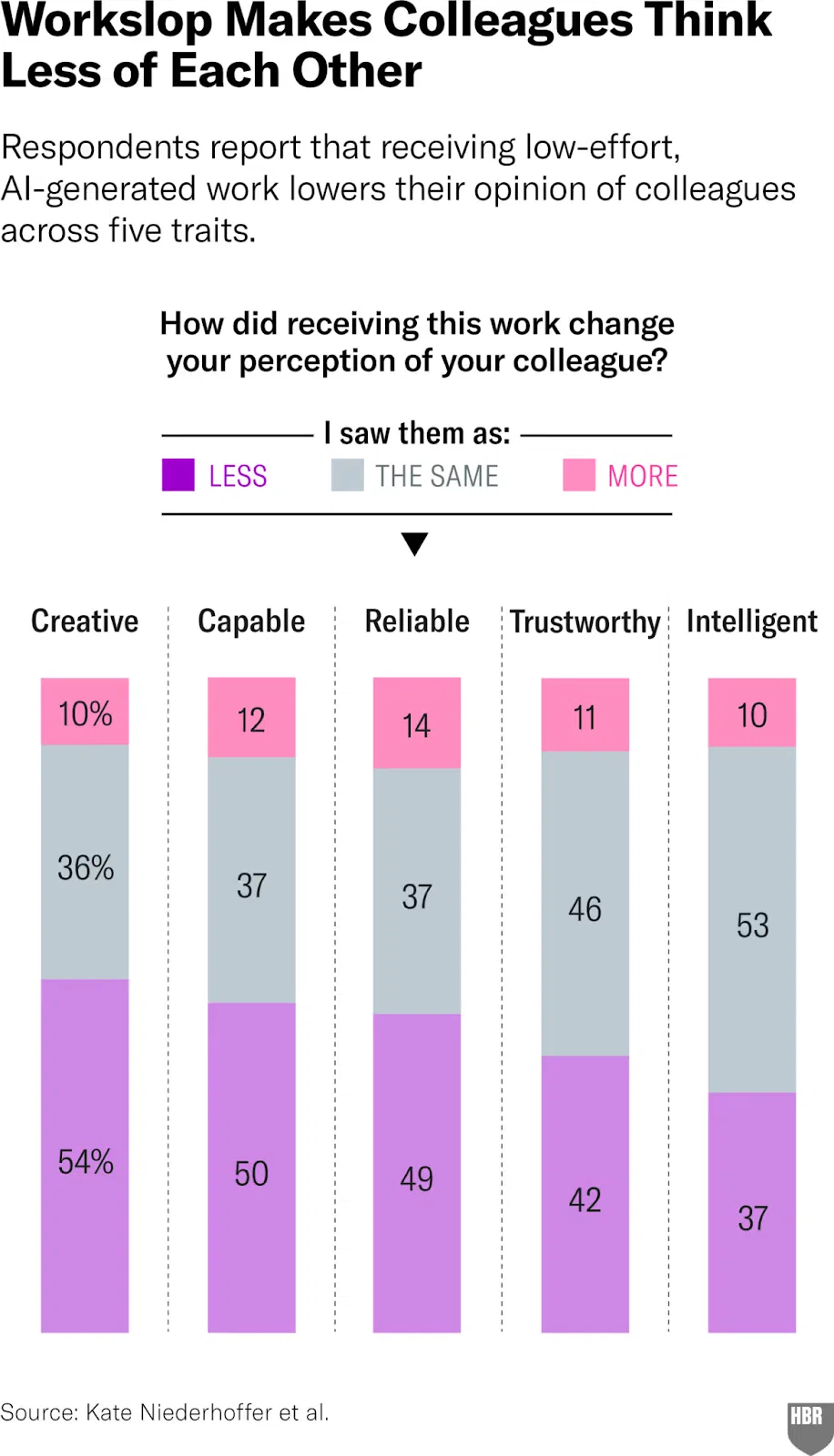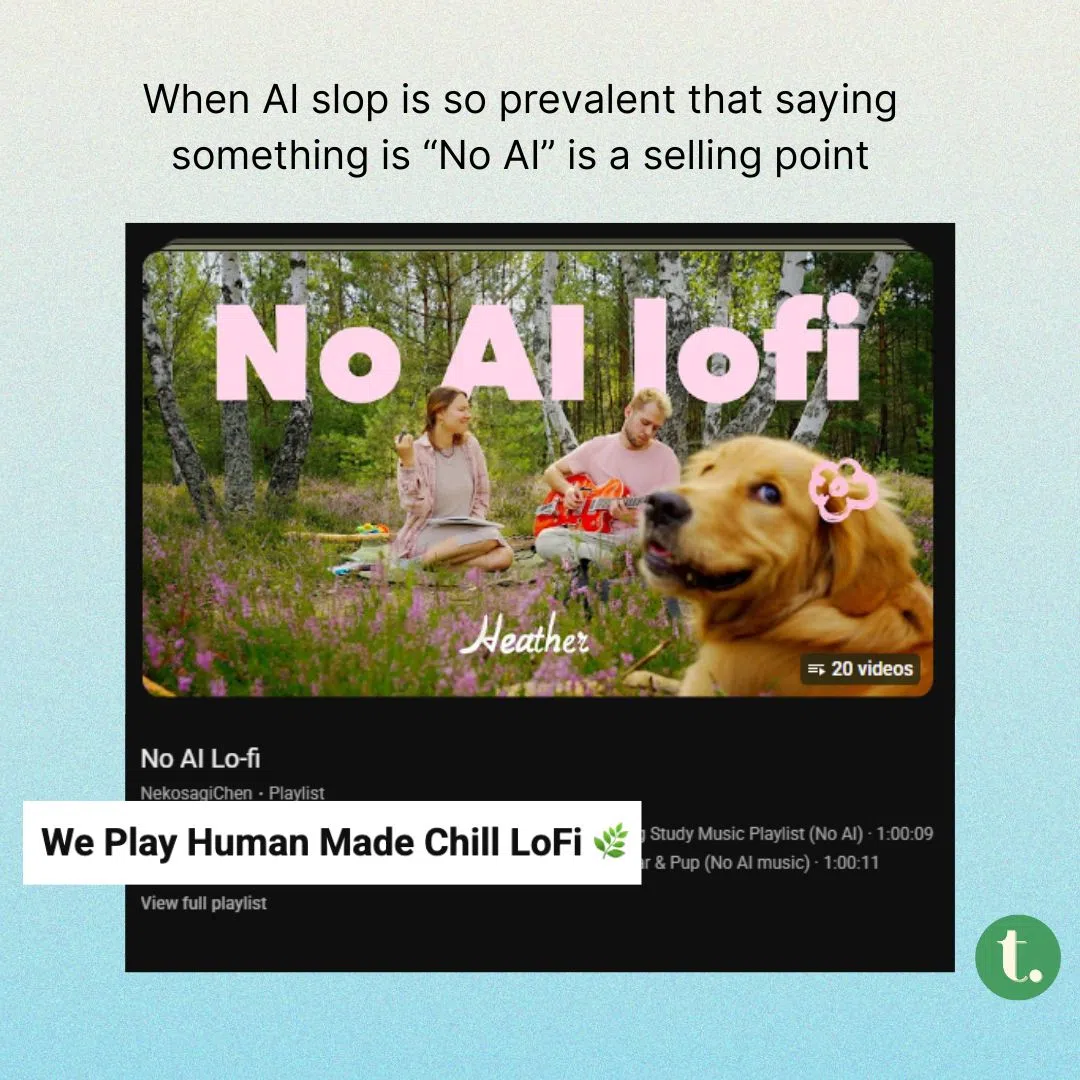Beware the AI workslop

Straight to your inbox. Money, career and life hacks to help young adults stay ahead.
[SINGAPORE] I keep noticing the same kind of writing everywhere. It mostly shows up in my e-mail inbox, when public relations folks pitch their clients.
One tells me that a new wedding platform “isn’t just about efficiency, it’s about giving couples peace of mind, knowing that every aspect of their wedding is handled seamlessly.”
Another says that this school’s graduation ceremony is “not just a milestone—it’s a moment to reflect” on how the institution has grown into one for all ages to learn to thrive in a rapidly evolving economy.
Yet another tells me that content creation is “no longer just about making content—it’s about designing stories with emotional clarity and strategic intent, from the very first idea.”
I like to call this performative epic-ification, or when people (often advertisers and marketers) inflate mundane things to make them sound more important than they actually are.
I suspect these e-mails aren’t even written by people, but by AI.
Navigate Asia in
a new global order
Get the insights delivered to your inbox.
Or at least, they’ve been influenced by the same style: short declarative sentences. An overuse of em dashes (—). “It’s not just X, it’s about Y. The reason? This.”
When I read stuff like this, it always sounds important and professional. But what exactly are these messages talking about?
🫠 Workslop
The new phrase for describing such writing is “workslop”. It was coined by researchers in the Harvard Business Review to describe low-quality, AI-generated work – slides, reports, e-mails and more – that looks polished on the surface but lacks meaningful substance.
While some people are using AI tools to polish good work, others are using them to “create content that is actually unhelpful, incomplete, or missing crucial context about the project at hand”, wrote the researchers from Stanford University who collaborated with BetterUp, a leadership coaching platform.
Here’s what respondents of the study said:
In another case, a frontline manager in the tech sector described their reaction: “It was just a little confusing to understand what was actually going on in the e-mail and what he actually meant to say. It probably took an hour or two of time just to congregate [sic] everybody and repeat the information in a clear and concise way.” A director in retail said: “I had to waste more time following up on the information and checking it with my own research. I then had to waste even more time setting up meetings with other supervisors to address the issue. Then I continued to waste my own time having to redo the work myself.”
Of the 1,150 US-based employees surveyed, 40 per cent report having received workslop in the last month.
That means more work for someone else to fix it. Researchers estimate that for a company with 10,000 employees, workslop is costing it US$9 million (S$11.6 million) per year in lost productivity.
Worse, submitting workslop makes your colleague think of you as less creative, capable and reliable, according to the survey.

📋 What to do
So why do people still churn out slop? Laziness, surely, or impossibly tight deadlines. But a part of it is also because AI has gotten so good that we’ve delegated mental tasks to it.
Some people have called this “cognitive offloading”. The risk here is that relying too much on AI chatbots to do the idea generation, analysis and writing for us means we start to lose our ability to reason and think critically.
We assume what ChatGPT gives us is correct, or at least good enough. Because it looks like a finished product, we give it the benefit of the doubt.
For early-career workers, that’s extra dangerous. Without much experience, it’s easy to mistake fluff for good work.
It’s not all on the new hires either. Employers have a responsibility to train new hires to recognise what “good work” looks like. Sometimes we turn to AI hoping it’ll improve our work precisely because guidance is lacking.
Still, here are some steps we can take to make sure our work actually adds value.
- Learn to cut through clutter. When you read your own work, ask yourself if it actually says anything. If you replaced the buzzwords with simple English, does it still make any sense?
- Don’t be vague. You don’t need to dramatise every line. Use simple language. Most importantly, don’t be vague. Providing numbers, examples and names helps people understand what you’re talking about.
- Practise the boring basics. Especially as a new hire, you need to know how to do the basics yourself before outsourcing tasks to AI, otherwise you won’t be able to judge if what AI gives you is useful. Analyse a document yourself before checking with AI if you’ve missed anything. Learn to write a cohesive argument. Actually read the work that your seniors produce, instead of an AI-generated summary.
- Train your brain. Don’t just accept work – yours or anybody else’s – at face value. Ask probing questions: What problem is this solving? What would success look like? Where’s the evidence? Over time, you will train your questioning muscles and help yourself think sharper about your own work.
- Ask senior colleagues. Perhaps one reason why younger workers turn to AI might be because of insecurity, thinking that what it churns out is the standard. Instead, go talk to trusted colleagues who can hopefully show you what good looks like, and how you can get there.

AI didn’t invent sloppy writing in the workplace. But it has mass-produced it, and now we’re all drowning in it.
What will set you apart isn’t about sounding epic, but sounding clear.
Because in the end, polished work may get noticed but only work with substance moves things forward. The people who can do both are the ones who get ahead.
So was this written by AI? Or me after three shots of caffeine and a tight deadline? Who knows. What I do know is that this isn’t just a newsletter—it’s a once-in-a-lifetime opportunity… to read about slop.
TL;DR
- AI has supercharged “workslop” – work that looks polished but adds no substance
- A study found that it leads to colleagues having to redo the work and pick up the slack
- Submitting workslop makes you seem less creative, capable and reliable
- Improve your own work: cut clutter, be specific, practise the basics, and keep questioning
Decoding Asia newsletter: your guide to navigating Asia in a new global order. Sign up here to get Decoding Asia newsletter. Delivered to your inbox. Free.
Copyright SPH Media. All rights reserved.


